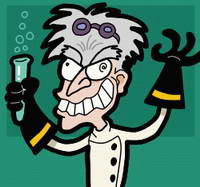This mirror is being hosted with the permissions of the original content creator for preservation and educational purposes.
SUPPLEMENTS & ADDITIVES

What is supplementing ?
It is the addition of an element or compound that is found
occuring naturaly in sea water. As an example, If you add calcium, you
are supplementing calcium since it is already found to be in sea water.
The problem quite a few hobbyists run into is when they supplement any
given element or compound to levels above that which is found in sea
water. To do so runs the risk of creating toxic levels . Please
remember that the biology and chemistry that occurs within our systems
is very complex and it is a mistake to think that you can add something
"extra" and it will just sit around in the tank harmless while waiting
for our livestock to use it. If you can not test for any given element,
then please do not add it per a bottles instruction. You would have no
way of knowing the level of that element or compound and it will
eventualy lead to either becoming toxic to your livestock, or will
allow other not so nice things to happen.
What is an Additive ? An
additive is anything that we add to our aquariums's water that is not
already in it. Such as sugar, garlic or any number of other
wizardry ingredients. Medicines also fall into the category of being an
additive. While helpfull, they of course may have negative consequences
for other livestock or the biology of your aquarium system. Which is
why any and all medicating of an animal should be performed outside of
the main aquarium in a quarantine tank type set up.
So why do hobbyist use additives? I imagine because they are
told only of the so called benefits by the person who is
trying to convince them that it is a good idea. The negative
consequences are usualy not brought up. Again, the use of sugar
is a good example. That and the need by some hobbyists to figure out
some recipe or method to get around basic biology and chemistry seems
to be a never ending issue. The search for the holy grail that will
solve all problems with one swift addition of it.
Please, if it is not found as an element or compound occuring naturaly in sea water, do not add it.
IN SHORT: 1. Only use those supplements that you are able to test at what level they are at.
2. Only use those
supplements that you know at what amount it is found in natural
sea water.
3. Never raise a
supplement's level above what is found in natural sea water.
4. Never use an additive in your main aquarium.
TEMPERATURE
Reef aquariums should be kept at 74 to 78 degrees. How many times have
you been told that? I for one, see it even now as being the "rule" and
suggested as the correct environment for our aquariums. Okay, So how
did "they" come up with that information? Did "they" go around the
worlds oceans and
test all the temperatures, did they go to the reefs where all the
corals are collected from that they sell in their stores and take the
temperature? I seriously doubt it. But, thankfully someone did,
and is
still doing it. Its a given fact that the corals that you see for sale
were collected from the Indo-pacific and Red Sea regions, You can
figure that out by viewing the export figures from CITES, and also by
knowing which countries it is illegal to collect and export corals
from. If you put the collected ocean temperature data together with
knowing where the corals came from, you will find that the average
temperature range that our corals came from is at an average of 82
degrees. So why are we told to keep our aquariums ten degrees colder? I
dont know, maybe this is one more thing that was carried over from the
freshwater hobby since it is obvious that no one knew the correct
range. Until now. Please take the time to read this link about TEMPERATURES
and rest your mind when your aquarium reaches 84 degrees. I run my reef
tank between 82 during the night, with highs reaching 86 during the
day, and do not own a chiller. Again, I have a unique perspective since
I can and have taken a thermometer out to the exact spot where I
collected my corals from, the majority of them were collected within
ten feet of the surface, which at 2 pm in the afternoon reaches a high
of 86 to 88 degrees, on days where there is not a large difference in
tidal movement, the water can easily go into the 90's, hot enough that
when I wade through it, it is just plain uncomfortable, and yet, here
are encrusting and branching hard corals sitting in it doing just fine.
Again, what is our whole point of keeping a reef tank? To recreate a
piece of the tropical reef within our homes. Or at least, it should be
in my opinion.
So why would we attempt to do so in unnatural conditions, which
can only lead to stress and becoming more vuneralbe to a host of
problems.
This mirror is being hosted with the permissions of the original content creator for preservation and educational purposes.

